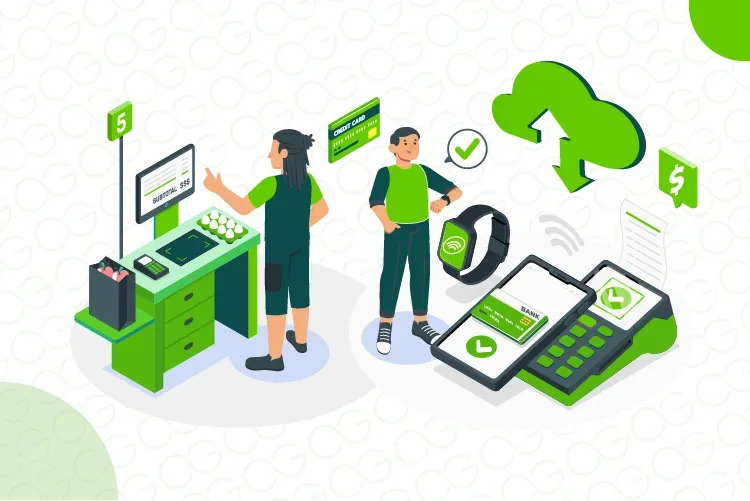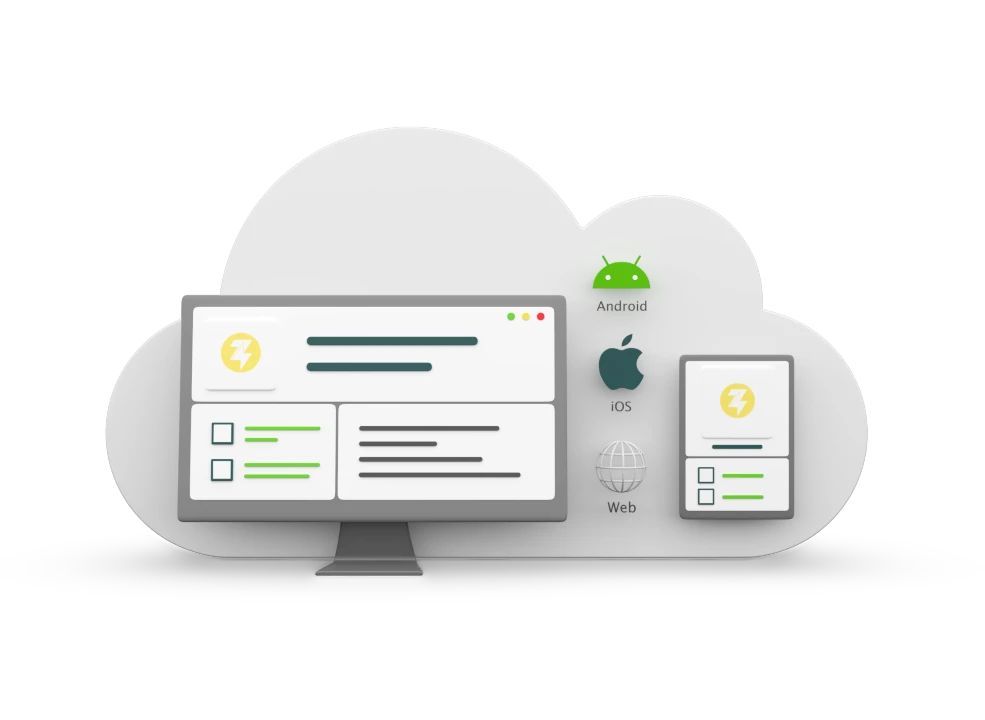Traditional vs Cloud-Based Point-of-Sale Solutions: Making the Right Choice for Modern Retail

Technology has revolutionized every industry, and the retail sector is no exception. Retail organizations today rely heavily on technological solutions to streamline operations, enhance efficiency, and provide superior customer experiences. Among these solutions, the Point-of-Sale (POS) system holds significant importance as it directly impacts transactions, customer interactions, and inventory management.
Over the years, two types of POS systems have emerged: traditional POS systems and cloud-based POS solutions. Each has its own set of features, benefits, and limitations. While traditional POS systems have been the industry standard for decades, the advent of cloud-based technology has introduced a more dynamic, scalable, and efficient way to manage POS operations.
In this article, we will explore the differences between these two systems, examine the drawbacks of traditional POS solutions, highlight the advantages of cloud-based POS systems, and delve into how Ginesys’ cloud-based POS solutions are transforming retail operations.

Switch to a cost-effective, scalable, and flexible cloud-based POS solution with Ginesys.
Understanding Traditional POS Solutions
A traditional POS system, often referred to as a legacy POS system, operates within an internal network. It is usually installed on specific hardware, such as desktop computers or dedicated POS terminals, and stores all transaction and inventory data locally.
While traditional POS systems were groundbreaking at the time of their inception, their limitations have become more apparent as the retail landscape has evolved. Let’s take a closer look at the drawbacks of traditional POS solutions:
Drawbacks of Traditional POS Solutions
- Limited Mobility
Traditional POS systems operate on specific hardware and require users to log in at designated terminals. This lack of mobility prevents store associates from engaging with customers on the floor or completing transactions from anywhere in the store. The stationary nature of traditional POS systems adds constraints to operations and limits flexibility. - High Costs
Implementing a traditional POS system involves significant hardware investment, including terminals, servers, and networking equipment. Furthermore, as the market shifts toward cloud-based systems, maintaining legacy POS systems becomes increasingly expensive. Limited updates and vendor support for traditional systems also contribute to higher maintenance costs. - Data Accessibility Challenges
Data stored locally on a traditional POS system is only accessible from within the store. This makes it difficult for business owners or managers to monitor sales, inventory, or performance remotely, creating operational inefficiencies. - Scalability Issues
Expanding a retail business with traditional POS systems can be challenging. Adding new locations or terminals often requires significant infrastructure investments, making it difficult to scale operations quickly.
The Emergence of Cloud-Based POS Solutions
A cloud-based POS system stores data on cloud servers, enabling real-time data synchronization and global accessibility. This modern approach to POS systems has gained significant traction among retailers due to its flexibility, scalability, and ability to integrate seamlessly with other retail technologies.
Cloud-based POS systems address many of the limitations of traditional systems while offering new capabilities that align with the demands of modern retail. Let’s explore the key advantages of cloud-based POS solutions:

Reduce costs & improve efficiency by embracing a budget-friendly, subscription-based cloud POS solution.
Advantages of Cloud-Based POS Solutions
- Easy Accessibility
One of the standout features of cloud-based POS systems is their ability to provide data access from anywhere. Retailers can monitor sales, inventory, and performance metrics across multiple locations from a centralized dashboard. This is particularly beneficial for businesses with multiple stores or e-commerce operations.
Ginesys’ cloud-based POS offers centralized data management, allowing retailers to access information in real-time, make informed decisions, and respond quickly to changes in the market. - Real-Time Data Synchronization
Cloud POS systems ensure that sales, inventory, and customer data are updated in real-time. This eliminates discrepancies between stock levels and sales records, reducing errors and improving operational accuracy.
With Ginesys, retailers receive instant notifications about low stock levels, enabling them to reorder products before they run out. This ensures that customers always find what they are looking for, enhancing their shopping experience. - Enhanced Customer Experience
In today’s competitive retail environment, providing an exceptional customer experience is crucial. Cloud-based POS systems allow retailers to access customer data, including purchase history, preferences, and loyalty program details.
Ginesys’ customer management features enable retailers to personalize the shopping experience by offering targeted promotions, rewards, and recommendations, fostering customer loyalty and driving repeat business. - Cost Efficiency
Unlike traditional POS systems, cloud-based solutions require minimal upfront investment. They typically operate on a subscription model, reducing the need for expensive hardware and ongoing maintenance.
Ginesys provides a cost-effective solution with regular updates, ensuring that retailers always have access to the latest features and technologies. - Mobility and Flexibility
Cloud-based POS systems, such as Ginesys’ Zwing, enable mobile transactions, allowing store associates to assist customers and complete purchases anywhere in the store. This reduces wait times, improves efficiency, and enhances the overall shopping experience. - Seamless Integration with Other Systems
Cloud-based POS systems can integrate with a wide range of retail technologies, including e-commerce platforms, inventory management systems, and CRM tools.
Ginesys’ integrated ecosystem ensures seamless connectivity between POS, inventory, and customer management systems, creating a unified retail experience across all channels.

How Ginesys is Transforming Retail with Cloud-Based POS Solutions
Ginesys is a leader in providing cutting-edge POS solutions that address the challenges of traditional systems and harness the power of cloud technology. Here’s how Ginesys is helping retailers transform their operations:
1. Omnichannel Support
Ginesys’ cloud-based POS seamlessly integrates online and offline operations, ensuring that customers receive a consistent experience across all channels. Whether it’s click-and-collect, ship-from-store, or in-store purchases, Ginesys enables retailers to meet customer expectations with ease.
2. Real-Time Analytics and Insights
Ginesys provides robust analytics tools that offer insights into sales performance, customer behavior, and inventory trends. Retailers can use this data to optimize product assortments, plan promotions, and make data-driven decisions.
3. Scalability for Business Growth
As businesses grow, Ginesys’ scalable architecture allows retailers to add new locations, terminals, and channels without significant infrastructure investment. This ensures that businesses can expand seamlessly while maintaining operational efficiency.
4. Data Security and Reliability
Data security is a top priority for Ginesys. The platform uses advanced encryption and compliance standards to protect sensitive information, ensuring that customer and business data remains secure.

Say goodbye to outdated POS limitations! Upgrade to a smarter POS system like Ginesys!
Choosing the Right POS Solution for Your Business
When selecting a POS system, retailers should consider the following factors:
- Business Size and Growth Plans: Cloud-based POS systems are ideal for businesses planning to expand or operate across multiple locations.
- Budget and Cost Efficiency: Evaluate the total cost of ownership, including hardware, maintenance, and subscription fees.
- Integration Capabilities: Ensure the POS system can integrate with other retail technologies, such as inventory management and CRM tools.
- Customer Experience: Choose a system that enhances the shopping experience through personalized interactions and seamless transactions.
For modern retailers, cloud-based POS systems offer unparalleled flexibility, scalability, and efficiency, making them the preferred choice over traditional systems.
The shift from traditional to cloud-based POS solutions marks a significant milestone in the evolution of retail technology. While traditional systems have served businesses well in the past, their limitations make them less suited for the demands of today’s dynamic retail environment.
Ginesys’ cloud-based POS solutions empower retailers to embrace the future of retail with advanced features, seamless integration, and a focus on customer-centric operations. By choosing Ginesys, businesses can streamline their operations, enhance customer satisfaction, and achieve sustainable growth. Get in touch with Ginesys today!
Investing in a cloud-based POS system is not just a technological upgrade—it’s a strategic decision that positions your business for success in an increasingly competitive market.
